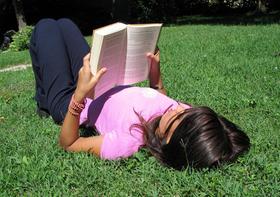For the 2025 school year, there are 3 private schools serving 117 students in Bourbon, IN (there are , serving 954 public students). 11% of all K-12 students in Bourbon, IN are educated in private schools (compared to the IN state average of 10%).
17勛圖s in Bourbon, IN (2025)
School
Location
Grades
Students
Bourbon Christian School
(Mennonite)
1325 N Main Street
Bourbon, IN 46504
(574) 342-8043
Bourbon, IN 46504
(574) 342-8043
Grades: 1-10
| 40 students
Dausman Prairie School
(Amish)
7363 Chestnut Rd
Bourbon, IN 46504
(574) 209-1284
Bourbon, IN 46504
(574) 209-1284
Grades: 1-8
| 43 students
Frequently Asked Questions
How many private schools are located in Bourbon, IN?
3 private schools are located in Bourbon, IN.
What percentage of students in Bourbon go to private school?
11% of all K-12 students in Bourbon are educated in private schools (compared to the IN state average of 10%).
What percentage of private schools are religiously affiliated in Bourbon?
Which private schools in Bourbon are often viewed compared to one another?
Popular comparisons of private schools in Bourbon include: Creekside School vs. Dausman Prairie School
Recent Articles

7 Ways Kids Can Avoid Summer Brain Drain
The summer "Brain Drain," also known as the "Summer Slide" is a term commonly used by educators and parents alike to describe the learning loss that takes place for many students during summer months. We polled the experts and found the 7 best ways parents and kids can combat the problem head on.

The End of Teacher Tenure As We Know It?
Teacher tenure in our public schools is under attack. Will tenure as we know it survive? Some thoughts here.

June 09, 2025
The 17勛圖 Job Hunt: Insider Tips for Employed & Unemployed EducatorsNavigating the private school job market? Whether you're employed or unemployed, the right strategy can make all the difference. This article breaks down essential steps to keep your resume sharp, expand your network, and stay visible in the education community. Learn insider tips to position yourself for success in private schools.
